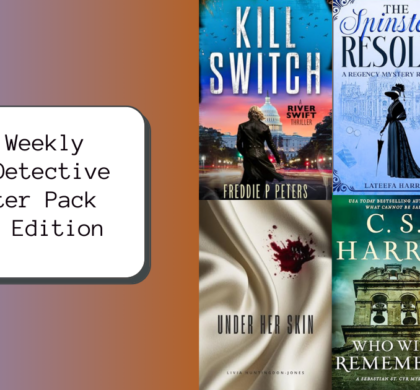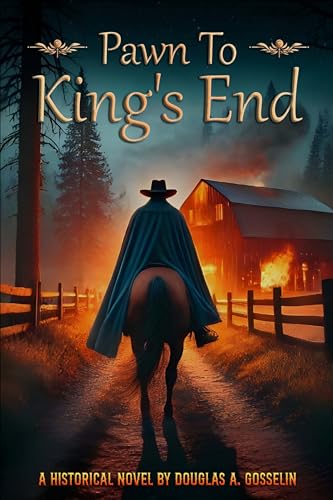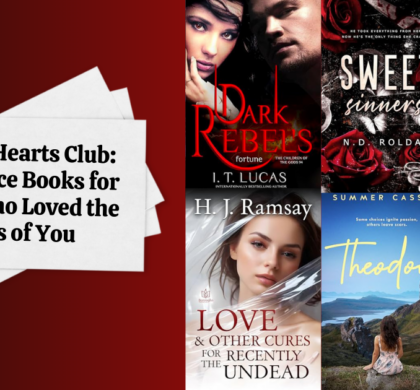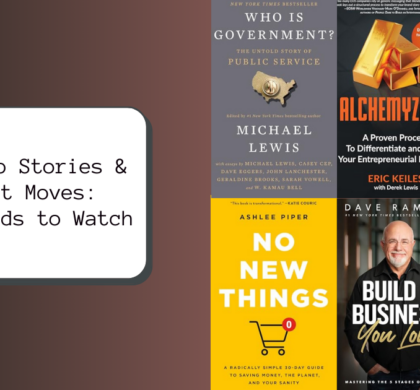Interview with Douglas A. Gosselin, Author of Pawn to King’s End (Secrets of the Republic Book 1)
08 Apr 2025
What’s the story behind the story? What inspired you to write Pawn to King’s End (Secrets of the Republic Book 1)?
The story began, as many true stories do, in the quiet corridors of family history. What started as a genealogical pursuit stretched over fifteen years—an excavation of names, dates, and places—led me to Clément Gosselin, my ancestor, a man whose role in the Revolution was both courageous and overlooked. I hadn’t planned to write a novel, not at first. But once I unearthed the legacy of another ancestor, Gabriel Gosselin, the story deepened, split like a river, and took on a life of its own. Neither of their stories is widely known in the United States—if at all. Perhaps they echo more clearly in Canada and Nova Scotia, especially the history of the Grand Dérangement, which I never learned as a child. Gabriel’s expulsion during that dark chapter—the forced removal of the Acadians—is a true and documented journey. He and his wife were among those driven from their homeland, traveling the length of the East Coast before arriving in Charles Town, South Carolina. His story is one of survival, exile, and unexpected resilience—one I believe deserves far greater recognition. Clément’s path, too, emerged through archival discovery. In the Library of Congress, I found letters between him and George Washington, evidence of his presence at high-level strategy meetings, his work under Lafayette, and his role as a spy in Quebec. Each man’s tale could have stood alone—novel-length and worthy—but I saw something in the synthesis, a reflection of how legacies intertwine, how truth and fiction braid together. Pawn to King’s End is the fictional embodiment of that lineage: an ode to those who moved unseen through history, whose sacrifices deserve to be remembered, and whose stories are only now beginning to speak.
If you had to pick theme songs for the main characters of Pawn to King’s End (Secrets of the Republic Book 1), what would they be?
Clément Gosselin – “Simple Man” by Lynyrd Skynyrd (A son of the soil, called to courage by his bloodline and faith, walking the line between honor and hardship.)
Gabriel Gosselin – “Pancho and Lefty” by Townes Van Zandt (1972) (A ballad of betrayal, exile, and unspoken pain. Gabriel’s journey mirrors the quiet endurance of a man pushed into shadows by forces larger than himself, his dignity intact but his home forever behind him. It’s a song for those history forgets, but memory mourns.)
Mr. Smith – “Riders on the Storm” by The Doors (A ghost in the system, cool and calculating, slipping through history’s cracks.)
Marie Doucet Gosselin – “You’re No Good” by Linda Ronstadt (A woman scorned by empire, forced to survive with strength she never knew she had.)
Jacques LeBlanc – “Take It to the Limit” by Eagles (A man who carries others on his back, quietly, while his heart stays anchored in lost lands.)
What’s your favorite genre to read? Is it the same as your favorite genre to write?
My favorite genre to read is historical fiction, military fiction and non-fiction, especially works that challenge established myths and reanimate forgotten figures. I also love espionage thrillers with ethical ambiguity. I write in that same vein—melding fact and fiction, blending shadows with light.
What books are on your TBR pile right now?
• Washington’s Spies by Alexander Rose • The Secret War by Max Hastings • Hamnet by Maggie O’Farrell • The Book Thief by Markus Zusak (a reread with fresh eyes) • The Unwomanly Face of War by Svetlana Alexievich.
What scene in your book was your favorite to write?
There’s a short scene early in the novel—quiet, almost whispering—that has stayed with me more than any other. It’s the moment when we first meet Clément Gosselin in the woods, watching Mr. Smith atop the copper horse, while a young soldier trembles nearby. Nothing explodes. Few words are spoken. And yet everything is happening beneath the surface. The woods feel alive, ancient, and eerie—more witness than backdrop. Clément isn’t just observing; he’s measuring the world he helped shape and the strange men now shaping what comes next. That scene lingers like a held breath. It’s the soul of the book, suspended between the known and the unknowable, history and myth.
Do you have any quirky writing habits? (lucky mugs, cats on laps, etc.)
I don’t think I have quirky habits, but I know that if I’m stumped for ideas on where to take a story, I love reading documents in the Library of Congress and newspapers from the period. That is a treasure trove of ideas.
Do you have a motto, quote, or philosophy you live by?
Worry is a waste of time.
If you could choose one thing for readers to remember after reading your book, what would it be?
That the “good old days” were seldom as good as memory paints them, and the times we live in—though complicated—are rarely as dark as what came before. Pawn to King’s End reminds us that freedom was born in fire and ambiguity, not in simplicity or certainty. The past is often romanticized, but beneath the powdered wigs and declarations were people grappling with fear, betrayal, sacrifice, and survival. If we listen closely, history doesn’t flatter—it cautions. And it humbles.
Douglas A. Gosselin is the author of the new book Pawn to King’s End (Secrets of the Republic Book 1)
Connect with Douglas A. Gosselin
Author Site
Sign up for our email and we’ll send you the best new books in your favorite genres weekly.
Related
meghan
Recommended Posts

Your Weekly True Detective Starter Pack—Book Edition
17 Apr 2025 - Books to Read if You Like..., eBook, Mystery, News, Thriller


